 Episode eight begins with Henry feeling an “impediment” to his marriage that is deeply troubling his conscience. (yes, he has one). The whole marriage has been a terrible mix up. Anne had already been pre-contracted to Francis of Lorraine, (later the Duc de Bar) so therefore Henry had really married another man’s wife. But Francis of Lorraine is soon to marry Christina of Milan. (the bride that Henry originally wanted to marry). The solution is simple: Wife Swap. oh, darn...wrong show.
Episode eight begins with Henry feeling an “impediment” to his marriage that is deeply troubling his conscience. (yes, he has one). The whole marriage has been a terrible mix up. Anne had already been pre-contracted to Francis of Lorraine, (later the Duc de Bar) so therefore Henry had really married another man’s wife. But Francis of Lorraine is soon to marry Christina of Milan. (the bride that Henry originally wanted to marry). The solution is simple: Wife Swap. oh, darn...wrong show.No, this is the Tudors where the solution can only be divorce or death. Henry tells Anne that he is packing her up and sending her to Richmond to get a little fresh air. We don’t know what Anne thought of her deportation, but it might have been along the lines of, “Say, didn’t you try that Richmond trick on your first wife?” Catherine of Aragon certainly didn’t fall for it. Would Anne?
While Anne is relaxing in Richmond, Henry’s lackeys draw up the divorce papers on the grounds of non-consummation and the legal impediments caused by Anne’s pre-contracted marriage with Francis of Lorraine. When the news is broken to Anne, it doesn’t take long for her to cooperate fully. The scene with her breaking down in tears is factual for firsthand accounts reported her crying pitilessly at the news. As part of the divorce settlement, Anne was given 4000 pounds a year, Richmond and Bletchingley, and the consolatory title of “sister.” Not bad for a wife of Henry.
 Meanwhile, The Duke of Suffolk and Francis Bryan plot to put a new pretty plaything in front of the king. Their chosen trinket is the seductive and nubile Kathryn Howard. In reality, her uncle, the Duke of Norfolk secured her a position as lady-in-waiting to Anne of Cleves and we do not know when she caught the king’s eye. In the Tudors, it is also implied that Kathryn was a “rich bastard” but in reality she came from a minor noble branch of the Howard clan (Anne Boleyn was her cousin.) Her father was Lord Edmund, the third son of the second Duke of Norfolk. Her mother was Jocasta Culpepper, a rich co-heiress. Sadly, Catherine’s mother died when she was young and Kathryn was packed off to the Household of her step-grandmother, the Dowager Duchess of Norfolk. Under the Duchess of Norfolk’s care, she romped and played like the Tudor version of ‘Girls gone wild’ except she thought no one was watching. People were watching. Those people may have some tales to tell in season four…
Meanwhile, The Duke of Suffolk and Francis Bryan plot to put a new pretty plaything in front of the king. Their chosen trinket is the seductive and nubile Kathryn Howard. In reality, her uncle, the Duke of Norfolk secured her a position as lady-in-waiting to Anne of Cleves and we do not know when she caught the king’s eye. In the Tudors, it is also implied that Kathryn was a “rich bastard” but in reality she came from a minor noble branch of the Howard clan (Anne Boleyn was her cousin.) Her father was Lord Edmund, the third son of the second Duke of Norfolk. Her mother was Jocasta Culpepper, a rich co-heiress. Sadly, Catherine’s mother died when she was young and Kathryn was packed off to the Household of her step-grandmother, the Dowager Duchess of Norfolk. Under the Duchess of Norfolk’s care, she romped and played like the Tudor version of ‘Girls gone wild’ except she thought no one was watching. People were watching. Those people may have some tales to tell in season four… Henry of course falls instantly in love with Kathryn. They then share a series of conversations reminiscent of two apes sharing a banana. Most of Kathryn's lines consist of fluctuating snorts and giggles delivered half-naked. History tells us that one of Kathryn’s more alluring qualities was that she dressed herself in the more becoming French fashions that Jane had banned (shown here). Unfortunately, it’s hard to get the sense of her being a fashion guru with her always missing her clothes. I predict next season is going to be a tad steamier.
Henry of course falls instantly in love with Kathryn. They then share a series of conversations reminiscent of two apes sharing a banana. Most of Kathryn's lines consist of fluctuating snorts and giggles delivered half-naked. History tells us that one of Kathryn’s more alluring qualities was that she dressed herself in the more becoming French fashions that Jane had banned (shown here). Unfortunately, it’s hard to get the sense of her being a fashion guru with her always missing her clothes. I predict next season is going to be a tad steamier. If you want tears, turn to poor Cromcakes who is suddenly out of a job. His official charges were treason, heresy and scandalum magnatum (which is Latin for being a big jerk to your betters). He is not given a trial and arrested on an Act of Attainder.* But before he is handed his Tudor walkng papers, he is ordered to complete one last official duty - write a letter showing that Henry did not consummate his marriage. The Tudors uses Cromwell’s real letter including his cry for, ‘mercy, mercy, mercy.’ (1) Most of what we know of Henry’s reaction to Anne is from this letter.
If you want tears, turn to poor Cromcakes who is suddenly out of a job. His official charges were treason, heresy and scandalum magnatum (which is Latin for being a big jerk to your betters). He is not given a trial and arrested on an Act of Attainder.* But before he is handed his Tudor walkng papers, he is ordered to complete one last official duty - write a letter showing that Henry did not consummate his marriage. The Tudors uses Cromwell’s real letter including his cry for, ‘mercy, mercy, mercy.’ (1) Most of what we know of Henry’s reaction to Anne is from this letter.Cromwell’s downfall cannot be attributed to one defining moment, but his failed foreign policy certainly played its part. He had succeeded in counterbalancing the threat of a Franco-Imperial war by securing an alliance with Cleves, but he forgot the fundamental nature of alliances….they were two way streets. You scratch my back and I scratch yours. And that meant that if Cleves went to war with Spain, England had to come to its defense. Unfortunately for Cromwell, it looked like that is exactly what was about to happen.
Charles V and William of Cleves had been arguing over whom had rights to the rich land of Gelderland for some time. To settle the matter, Charles V went straight for the Low Countries to claim it for himself. Now, a war between Cleves and Charles’ Imperial forces was forthcoming and Henry was in no mood to come to the Cleves family defense. To make matters worse, The French king, Francis I and Charles V were at each other’s throats (think Mean Girls but with swords and codpieces.) With Francis and Charles distracted with their own bickering, a Franco-Imperial attack on England turned out to be just another boogieman in the closet. Anne now served no purpose other than to make Henry miserable. Cromwell had gambled and lost.
Then there was the whole messy business of religion. Cromwell’s enemies accused him of a whole slew of heretical charges including spreading heretical literature, allowing heretical writings to be translated, supporting the teaching of Barnes and allowing the common man to minister the sacrament. We still don’t know today what exactly Cromwell was up to, but he went to his grave claiming that he wasn’t a heretic. Today, Cromwell certainly has his detractors, but most historians agree that his death was senseless and the reason for using an Act of Attainder was that there was not enough evidence to convict him.
 And let's not forget that Cromwell just wasn’t playing nice with others. His enemies resented his power and his rise from humble beginnings. Class structure was not a thing to be circumvented in Tudor England and a blacksmith’s son normally did not become the second most powerful man in the kingdom. Cromwell simply had too many enemies.
And let's not forget that Cromwell just wasn’t playing nice with others. His enemies resented his power and his rise from humble beginnings. Class structure was not a thing to be circumvented in Tudor England and a blacksmith’s son normally did not become the second most powerful man in the kingdom. Cromwell simply had too many enemies.The only person who had anything remotely nice to say about Cromwell was Cranmer. When asked what his relationship with the fallen minister was, he said, ‘I loved him as my friend…But now, if he be a traitor, I am sorry that I ever loved him or trusted him.’ (2)The Tudors used this quote, but has Rich saying it instead of Cranmer.
Cromwell shared the scaffold with Lord Hungerford who was executed for sodomy and various heinous crimes. The Tudors shows what looks to be a homeless person shaking on the scaffold and I am assuming that is our guy Hungerford. Hungerford was executed at the same time as Cromwell in an effort to disgrace Cromwell futher. (In Tudor England, sodomites were viewed as the lowest of the low).
You might want to cover your eyes during Cromwell’s execution scene. According to Foxe, ‘he patiently suffered the stroke of the axe, by a ragged butcherly miser, which very ungodly performed the office.’ (3) People are always counting the swings it takes to remove a head, but I say anything over one counts as a seriously botched execution.

But all ends well back at the Tudor Playboy ranch with Kathryn Howard looking like a kinky Fragonard painting. But wait….is that regret on Henry’s face? Does Miss Giggles have the goods to hold a king’s attention? Will have to wait to season four to find out…
Stay tuned for a chance to win season two of The Tudors. Details coming this week.
Sources and Notes:
* An Act (or Bill) of Attainder is a Parliamentary procedure in which Parliament passes judicial sentence on an accused person as if it were a court of law.
All sources listed in previous posts
(1)L. P, Henry VIII, Volume 15: 1540, pp. 376-412. Cromwell to Henry VIII
(2)Starkey, Kindle location 11081-87
(3) Dickens. p. 73
Additional Sources:
Dickens, A. G. Thomas Cromwell and the English Reformation, London, UK: The English Universities Press, 1967.

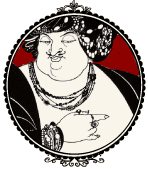

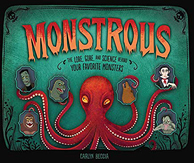
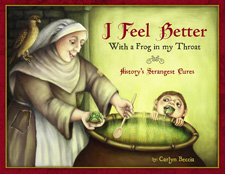
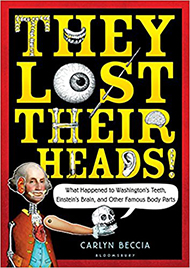


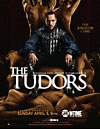

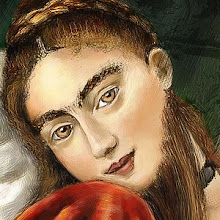

12 comments:
I'd have to agree that Anne of Cleves got the best deal of them all - she's set for life and still has her head! This was a really great post - you do such a great job on them!
Thank you for the write ups. They are an enjoyable read and it's wonderful to know the real history.
Just to let you know that I've awarded you with the Kreativ Blogger award because I love your blog - see http://www.theanneboleynfiles.com/resources/newsroom/the-anne-boleyn-files-wins-award/
Not sure whether you've won it before but you so deserve it x
I think it's true love for Kathy Howard and Hank this time.
Anne of Cleves managed out of her marriage pretty cleverly - why didn't she go home? too disgraceful?
Anne of cleves was awarded Hever Castle (Anne Boleyn's childhood home) in addition to Richmond...I'm I correct?
Amy and Andrea - thanks!
Anne Boleyn Files - cool. thanks! I always like the awards. It gives me a chance to feature some new blogs that I have found recently.
Carrie – Her divorce settlement depended on her staying in England. It really was a generous settlement and Anne would have never had the same quality of life in Cleves that she would have in England. In Cleves, she would have had to rely on her brother for support and he had other issues to deal with.
Karen – That’s right. Anne was given Hever, along with Kemsing and Seal, but these estates were not part of her divorce settlement. They were given to her later in Henry’s reign. Not too shabby!
It's a little late but your posts really are spectacular. I wish I had you as my European History teacher back in college. It's awesome to know the truth behind the scenes. Ever since I started reading your posts, I brag constantly to my Tudors-loving-friends about all the actual facts, and sounds like a big know it all.
Thanks for sharing your knowledge!
Thanks so much for these, posts. It was fun to read the fact vs fiction this season. Hope you're up to it next year too!
I'm kinda jealous of you all because I live in England and we're quite a way behind, so the third series of The Tudors is only starting next week (he's marrying Jane Seymour next).
Having said that, I'm half hour's drive from Hever Castle and it's one of my favourite places to relax - truly spectacular, so I can console myself with the real thing. I'm always awestruck at Anne Boleyn's book of hours, with her very apt inscriptions.
Why do you call this blog "History vs. Hollywood", when "THE TUDORS" is a product of Irish television? Viewers in Ireland and Great Britain get to see each season before American viewers do.
And Hollywood is not the only film community or entertainment industry guilty of changing history for the sake of drama. So, why does it always get the blame?
Rush Blog – I am not sure I understand your question but Season 3 of the Tudors aired at the same time in the US and Ireland markets (April 2009).
The lead production company is Peace Arch Entertainment (based out of Los Angeles).
Either way, I think you might be reading too much into the title of the posts. I never implied that "Hollywood was the only film community guilty of changing history for the sake of drama". If you read all my posts, I am a big fan of the show and I agree with most of the creative liberties taken by the producers.
These posts were written to give curious Tudor fans historical background information and were not intended as any social commentary on whether or not Hollywood is to blame for historical inaccuracies.
I've been watching The Tudors on DVD so I'm a bit behind everyone else. I just finished season 3 last night and I wish I'd found your blog sooner! This is exactly what I've been searching for ever since season 1. Thanks so much for sharing your amazing body of knowledge. If you ever have the time, I wish you'd go back through seasons 1 and 2 and give them the same detailed treatment. I find the historical comparison simply fascinating. Can't wait to read more during season 4!
Post a Comment